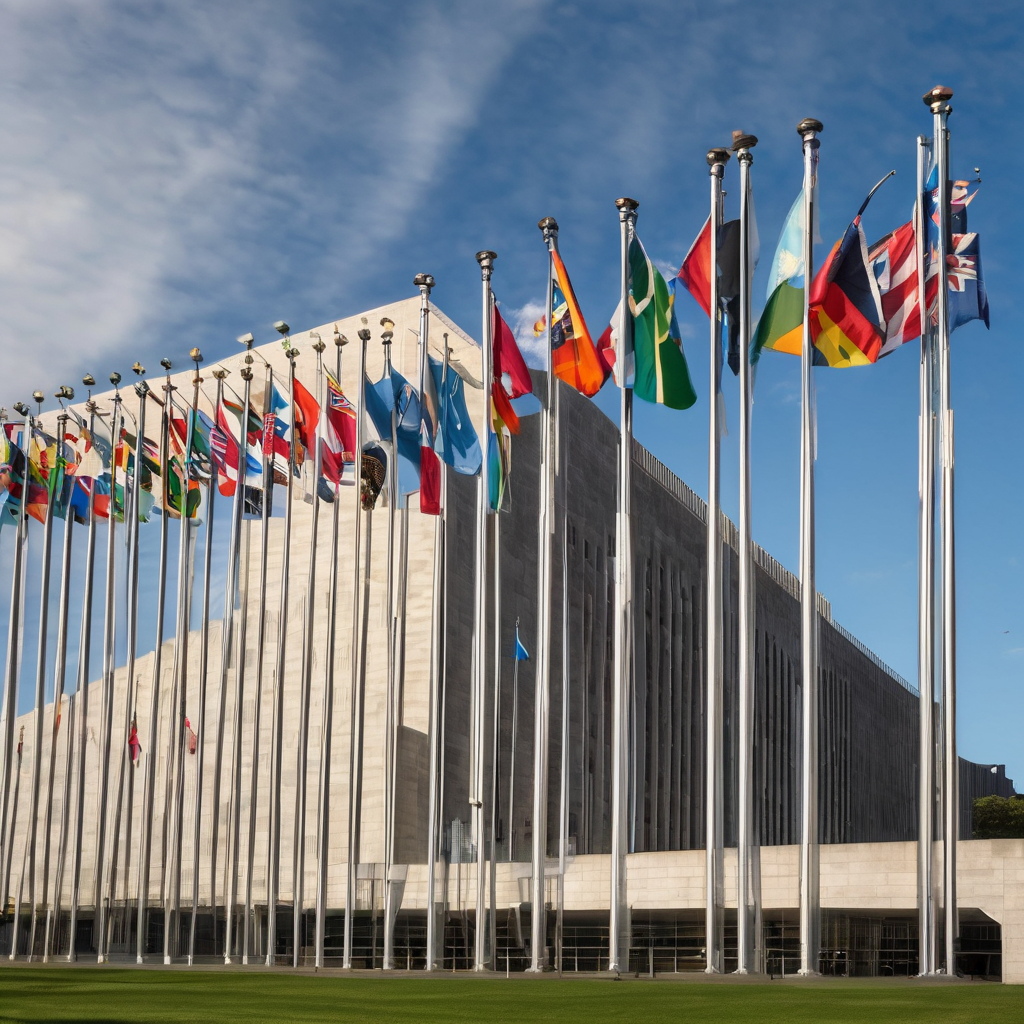The United Nations General Assembly is set to convene for its 80th session, and the spotlight is on President Donald Trump as he prepares to address global leaders. This session is expected to be dominated by the complex situations in Gaza and the broader debate over Palestinian statehood.
President Trump, who has recently implemented significant reductions in U.S. foreign aid, will face a challenging international landscape as several prominent countries, including France and Saudi Arabia, organize an international peace conference endorsing a two-state solution. The conference, which the U.S. is opting not to participate in, aims to garner additional support for Palestinian statehood—a move already recognized by over 140 countries.
Significant international developments have set the stage for this assembly. Countries such as the United Kingdom, France, and Canada have voiced the necessity of ending the conflict in Gaza while advocating for the release of hostages and a diminished role for Hamas post-conflict. Moreover, a group of countries is expected to join the ranks of those recognizing Palestinian statehood, a move met with resistance from both the U.S. and Israel.
Israeli Prime Minister Benjamin Netanyahu has responded negatively to this potential recognition, warning of possible retaliatory actions, such as annexing parts of the West Bank—a move controversial under international law. Critics argue that recognizing Palestinian statehood could inadvertently embolden groups like Hamas and further isolate Israel diplomatically.
Despite this tension, the UN General Assembly overwhelmingly voted to allow Palestinian President Mahmoud Abbas to address the assembly virtually, following the Trump administration’s denial of his visa. This decision underscores the contentious environment surrounding the Palestinian question at this year’s assembly.
On the broader international front, Trump has numerous bilateral meetings planned, including engagements with Israeli Prime Minister Benjamin Netanyahu and Ukrainian President Volodymyr Zelenskyy. Furthermore, issues like Iran’s nuclear program and restoration of sanctions, along with postwar security arrangements for Ukraine, are expected to be key agenda items during the assembly.
As the 80th session unfolds, world leaders are faced with the formidable task of navigating these sensitive issues. The outcome may significantly influence the geopolitical landscape and the future of peace efforts in the Middle East.
